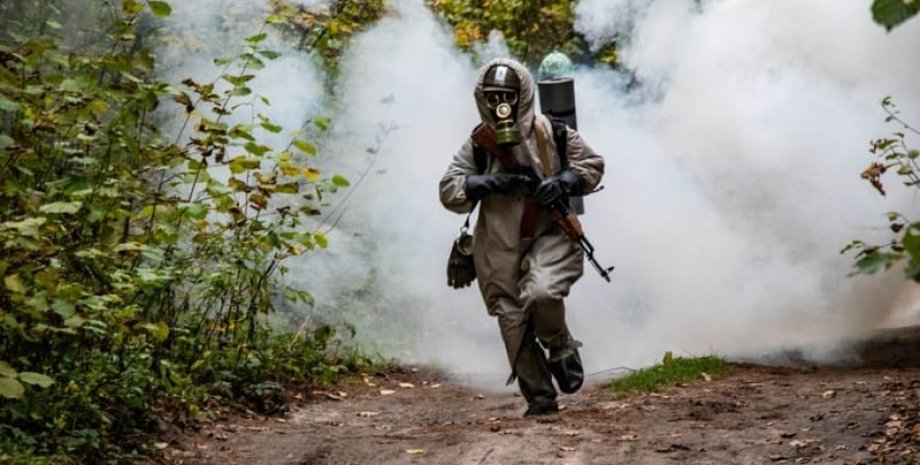
Ukraine, like Russia, are members of the Organization for the Prohibition of Chemical Weapons (OPCH), which should ensure that countries do not develop, accumulate and use chemical weapons. The use of such remedies in armed conflicts is a violation of international conventions, including the 1925 Geneva Protocol. But in the case of chemical attacks of the Armed Forces of the Russian Federation there is a nuance. The BBC writes about it.
The Ukrainian military says that the Russian military usually throw grenades with poisonous gas from a quadcopter into Ukrainian trenches. The military is forced to leave occupied positions. The Paramedic of the Armed Forces Ivan Mazhnyuk notes that the Russian Federation used artillery for chemical attacks on the Armed Forces in the rear. Russian troops began to use chemically hazardous substances from the first weeks of a full -scale war, says in. at.
Colonel Sergey Pakhomov, Head of the RHBO troops. The first chemical grenades found positions left by Russians in ordinary banks. Currently, the Russian army systematically uses grenades with two types of poisonous chemicals on the battlefield - CS (chlorobenzalmalononitril) and CN (chloracetophenone). Both belong to the group of combat poisonous substances of irritant action. And both use law enforcement officers to stop street riots.
During the Russo-Ukrainian War, about 500 cases of medical assistance for military assistance after Khimatak Russians and one fatal case that occurred in February 2023 were recorded. Sergey Pakhomov says there is a clear division: prohibited chemical weapons listed in OPCZ lists and chemically hazardous substances. They have neither CS nor CN used by Russians in Ukraine. Gas grenades of the Russian Federation do not belong to chemical weapons.
But the danger is that Russians can use more dangerous substances in such ammunition. In July 2023, the Armed Forces Presser Oleksiy Dmitrashkovsky announced the probable use of the Armed Forces of the Russian Federation of toxic luise, the so -called "dew of death", from the prohibited lists of the OBIZ. The Armed Forces of the Russian Federation was also used chlorpikrin.
Russia can create and use new chemicals that are not in the list of forbidden, Pakhomov notes, as an example of a "newcomer", which appeared in the postfactum list. Article 10 of the Convention on the Prohibition of Chemical Weapons states clearly that every State Party, even on suspicion of using chemical weapons against it, may attach to the investigation of chemical weapons prohibition experts. OPCC agreements were ratified only on April 24.










All rights reserved IN-Ukraine.info - 2022